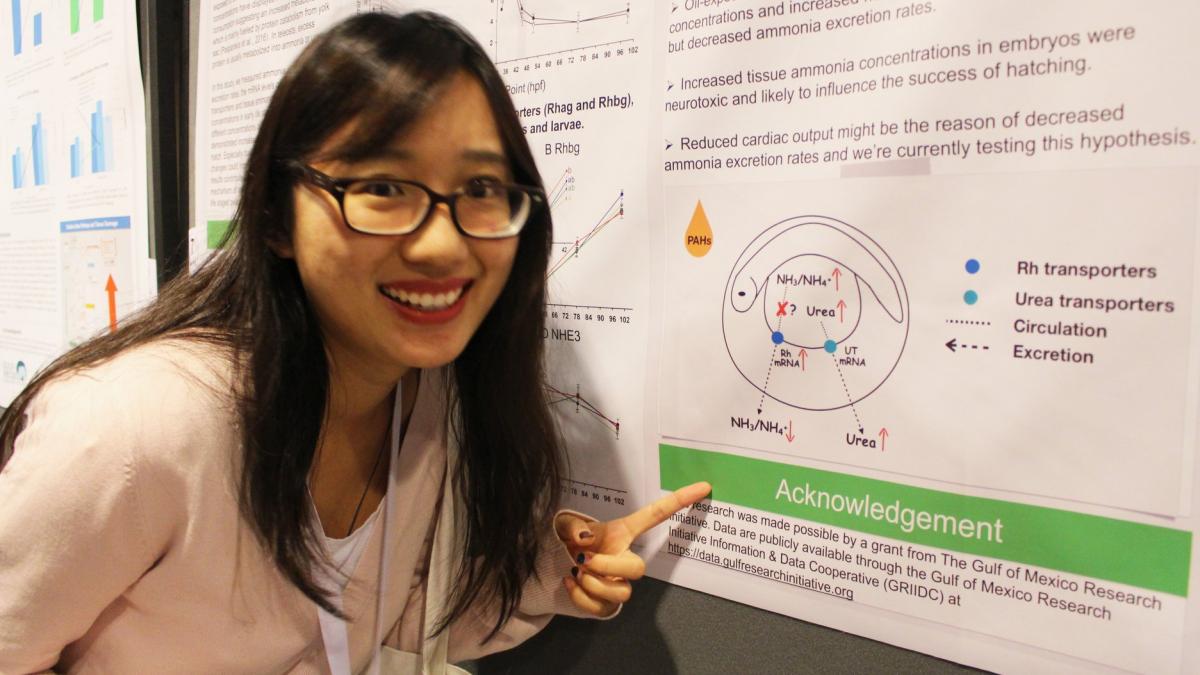
Dr. Yadong Wang joins the Gallagher lab as a trainee on Project One
Recently, Dr. Yadong Wang joined the Gallagher lab as a trainee on UW SRP Project One. Originally from China, Dr. Wang has a Ph.D. in marine biology and fisheries from the University of Miami. In the Gallagher lab, she will be working on the role of glutathione S-transferases and other antioxidant enzymes in maintaining olfactory function during metal exposures in zebrafish.
Below is a short interview with Dr. Wang.
Q: What first got you interested in science?
A: As a child, I liked all the hands-on classes, like crafting and experimental classes. Science is a great way to keep doing things I like and exploring why the world it is like it is. Science also runs in my family. Many of my relatives work in chemistry, computer science and atmospheric science. I'm happy to follow in their footsteps.
Q: What did you study for your Ph.D.?
A: In the early life stages of fish, yolk sac proteins are the main energy source and are usually catabolized into ammonia or urea. This process is rarely studied, especially in saltwater fish. I investigated the ontogeny of ammonia and urea processing in developing mahi-mahi under normal conditions and in the presence of an environmental stressor- crude oil. I also studied the potential role of cardiovascular function in ammonia and urea processing in zebrafish larvae.
3. How did you decide to join the Gallagher lab?
A: Evan gave a talk at my previous department. His seminar about the impacts of elevated CO2 on olfaction in salmon made a deep impression on me. I got a chance to talk to him after the seminar. Evan is also a very nice person. So I wanted to join his lab.
Q: What most excites you about your current research? Why do you think it's important?
A: I'm always working at molecular level which is something you can't 'see'. The current research includes many behavior analyses after exposing fish to different metals, which help us 'see' the impacts more directly.
Our lab does a lot of work on olfactory injury in salmon. Reduced olfaction is important for wild fish because it can impair predator detection, reproductive timing and homing behaviors. Due to the lack of molecular tools for salmon, studying the underlying mechanisms in salmon is not easy. Zebrafish are susceptible to metal exposure in ways similar to salmon. Also, the availability of molecular tools and ease of generation makes zebrafish an excellent model species.
Q: What do you do outside of work for fun?
A: I like reading. After I moved to the states, I become more interested in books about world history and cultural differences. I also like traveling and cooking. Recently, I started learning how to make latte art, but it's so hard.
Welcome to the University of Washington Superfund Research Program, Dr. Wang!

